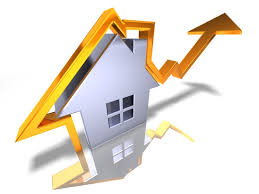Sellers
Read Below to Learn More About Selling a Property in GTA
Contents
- INTRODUCTION TO SELLING YOUR HOME
- DETERMINING A PRICE
- LISTING YOUR PROPERTY
- PREPARING TO SELL YOUR HOME
- OFFER TO PURCHASE
- CLOSING THE SALE
- CONCLUSION
I. INTRODUCTION TO SELLING YOUR HOME 
Are you thinking about selling your home but wondering if the right time is NOW? To help you determine if it is, I have used my real estate experience, plus my 20+ years Architectural back ground, to put together a guide to walk you through the steps of selling your property and give you the tools you need to make this important decision.
First of all, you need to know that local market conditions will have the most impact on the amount of money you can get for your property – and how quickly you can sell it. You may put a price on your home, but the market is what really prices it.
Under any circumstances, selling a home can be a stressful process, emotionally, financially and physically. To help ease this stress, I am here to counsel you through the sale with wisdom and experience, saving you incalculable aggravation and money. I know your neighbourhood, what Buyers want in a home, how to negotiate the best price and how to close the deal for you. Together, we can make the sale of your property easy and worry-free – and it all begins with you!
II. DETERMINING A PRICE
The market sets the price, not wishful thinking or any other factors. It is a simple law of supply and demand. Here are some things that have no actual impact on market value:
- How much you need to purchase your next home.
- How much you paid for your home in the first place.
- How much you spent on improvements. We consider the improvements themselves and how much value they bring, not the dollar value you are trying to recoup.
- The value of a similar home in a different community.
- The cost to build the same home today.
My job is to help you set a realistic price to match market conditions so your home sells quickly for the best possible price. Where my expertise comes in, is in the comprehensive analysis of what comparable/similar/competitive homes have recently sold for in your neighbourhood, weighing that with your home’s unique features. This process is known as a Comparative Market Analysis (CMA) and it is generally considered the most effective method of determining what potential Buyers will be willing to pay for your home.
Contact me (647)894-2754 for a Complimentary Market Analysis of Your Property.
The CMA is divided into three categories:
- Similar properties that have recently SOLD: By studying these, we can see what homeowners have actually received for their properties over the last few months.
- Similar properties that have currently been LISTED: These properties show exactly what alternatives a serious buyer has to choose from.
- EXPIRED LISTINGS were listed and did not sell. You can learn from their mistakes as they could be as a result of overpricing or other factors like location, layout, poor marketing etc.
By carefully studying the comparable property locations, features and terms, we can develop a clear picture of the potential market value for your property. This is a similar process that banks and lending institutions use in determining how much they will be willing to lend you for your home.
In addition to the CMA, I will help you develop a competitive price based on other key factors such as:
- Location
- Size
- Style
- Condition
- Community amenities
- Market conditions
Listing your property at market value is essential to a successful sale because Buyers will not be looking at either overpriced or underpriced homes. Most Buyers working with Realtors® receive property listings from their Realtor® via email, who is searching for them within the parameters of their needs. If the buyer’s budget for a home is $900,000, they are likely only looking at homes priced from $850,000-$950,000. You want your property to be seen by the Buyers who want a property like yours.
Another important factor to determining the correct price is that your home will lose its “marketability” after sitting too long on the market. There may be nothing wrong with your home, other than an unrealistic price, but it will eventually develop a stigma. Buyers will forget all about the overpriced home they saw weeks earlier; Realtors® searching on behalf of new clients will see the DOM (days on market) and wonder what is wrong with the property and why it has not sold yet. When they look at the previous selling price(s) and comparable properties they may not be willing to present your home enthusiastically to their clients if they feel it is not priced correctly.
You will attract more interest on your home if it is priced realistically and Buyers will most likely bring their best offer if they really want your home.
Most Buyers take between 2 and 6 weeks to build confidence and collect information about prevailing market conditions before making their first offer. By the time a typical Buyer is ready to make an offer, they will have seen all of the existing properties for sale in your neighbourhood and will only be waiting to see new listings as they arrive on the market.
This means the first few weeks after listing are the most critical since the number of prepared Buyers who will see your home will be at its peak. As a result, many vendors often come to realize that the first offer is usually the best offer. Listen to your agent’s advice and price right from the beginning.
III. LISTING YOUR PROPERTY
Once you have decided to list your property for sale, you can count on me to:
- Put your home on the market in a timely manner. My team is highly organized and prepared to work intensively for you to meet your timelines.
- Take care of all the paperwork and organize all the details, from stagers to professional photographers and floor plans on your behalf.
- Advise you about your legal rights, sale options and obligations.
- Check in with you frequently to advise you on what is happening behind the scenes, provide feedback from showings and keep you updated on what is being done on an ongoing basis to actively market your property.
- Negotiate offers to get you the best price and the best terms.
Real estate never stops! but we will look at all factors, keeping your ultimate goals and timelines in mind, and determine the best time for you to sell.
In order to put your home on the market, legal documents will come into play. The most important of these is the Listing Agreement, which is a contract between you and my brokerage, Right At Home Realty Inc., Brokerage. It will:
- Clearly spell out the rights and obligations of all parties, the length of the agreement, and the compensation (commission rate).
- Set the listing price.
The second major form is the MLS Data Form for putting your home on the Multiple Listings Service (exclusive agreements are different, used less often, and may be appropriate in some cases but we will discuss that during our consultation.) The MLS data form will:
- Accurately describe the property (including lot size, building size, style and materials, floor areas, heating/cooling systems, room sizes and descriptions)
- Detail what is, and what is not, included in the sale. As a general rule, fixtures are included; chattels, things which are movable, are not, but each transaction is unique, so take some time to decide what you would like to do.
- Provide information about annual property taxes, and note any easements, rights of way, liens or charges against the property.
In addition to these documents, there are other forms to spell out in writing your preferences about showings, offer dates and other important items. These documents are binding for us both, so we will go over them very carefully before you sign anything! Of course, you will receive copies of all the signed documents for your records.
There are also some things I will need from you, including:
- Plan of survey or sketch showing the lot size, location of buildings and any encroachments from neighbouring properties. You should hopefully have this from when you bought your property. Not to worry if you do not – most offers do not hinge upon a survey.
- Property tax receipts. The Listing Agreement will include information about your annual property tax assessments, so I will need to verify your taxes with a receipt.
- Mortgage verification. Details about your mortgage provided by a mortgage lender upon your authorization.
- Other documentation such as annual heating bills, water and sewage costs, electricity bills and recent expenditures on home improvements.
- Fintrac documents – I will need some of your personal information like date of birth and ID to verify for the Federal listing requirements.
My team will make copies of all the above and return the originals to you.
I will develop a detailed, custom marketing plan that will give your property the maximum exposure and attention it deserves. Some of the ways I use to market my client’s properties include:
- Feature spot on the front page of my very high-ranking website.
- Thorough, accurate MLS listing with pictures, text and details.
- Full-colour feature sheets that are offered to all prospective Buyers.
- Professional floor plans that are both accurate and attractive
- Professional photography capturing your home in its best light.
- High profile For Sale sign for freehold homes.
- Using my vast online social network.
- Just Listed cards mailed to the neighbourhood.
- Advertisements in social and print media such as the Globe and Mail, National Post, facebook, instagram and others.
For some homes I even arrange cleaning, painting, formal staging and/or even a pre-sale home inspection from a qualified inspector so your home’s condition is honestly disclosed to potential Buyers. We will discuss which extras your home may need, as well my full list of advertising options, when we meet! You will always be informed about what actions are being taken to sell your home, and receive regular progress updates regarding feedback from showings and other interest on your home. I will also be sure to keep you up-to-date on sales of other homes in the area to keep you informed.
During the listing period, your house should be ready to show at all times – meaning clean and clutter-free. Remember that those last minute touches before someone comes to view your home can make all the difference:
- Turn on all the lights, even during the day, and open all the drapes and blinds.
- Turn off the TV and play soft music.
- If you can, ask friends to look after your pets or remove them for showings. Some people may be allergic, others may be afraid of animals.
- You may be used to the smell of cigarette smoke and pet or food odours over time; others walking into your home, are not! Smell is very important and odours should be aired out with fabrics and surfaces cleaned, not just sprayed.
- Leave windows and mirrors sparkling.
- Set out fresh flowers, hang decorative towels in the bathroom, and make sure couch cushions are straightened.
- If possible: leave! Some Buyers are uncomfortable when the owner is in the house. In their hurry to get away, they may miss important features, or fail to ask important questions. They want to be able to talk freely about how they feel about your home and they may not want to say these things in front of you. If you must remain, be courteous, but try to stay in another part of the house and do not make conversation. The Buyer’s Realtor knows what the Buyer is looking for and can discuss features and answer questions.
IV. PREPARING TO SELL YOUR HOME 
Though cosmetic issues are not necessarily a sign of a badly maintained home, Buyers sometimes place a lot of emphasis on a property’s presentation. First time Buyers can be especially concerned with making such a big purchase and they want everything to be – or at least, to look – perfect.
Your home’s exterior is the first thing potential Buyers are going to see, and if is dilapidated, it may turn them off before they even see the inside. First impressions, also known as “curb appeal”, definitely count for a lot!
Here are some things you can do to improve the look of your home’s exterior:
- Trim the shrubs.
- Mow the lawn.
- Remove dead tree limbs and other yard debris.
- Brighten up the garden with fresh shrubs or flowers.
- Remove clutter like stray toys and gardening equipment.
- Touch up peeling paint on doors, siding and trim.
- Repair and/or paint any fencing.
- Fix damaged roof shingles and flashing.
- Clean outside windows and fix torn screens.
- Clean gutters and downspouts.
- Clear the driveway and sidewalk.
- Tidy up the garage and shed.
- Ensure outside lights and doorbells work.
Here are some simple things you can do to improve the look your home’s interior:
- Wash walls, ceilings and trim.
- Every room should look as spacious, bright and warm as possible.
- Tighten loose knobs, towel racks, switch plates and outlet covers.
- Fix tight doors and windows, squeaky floorboards and loose stair banisters.
- Clean and repair caulking around tubs and sinks.
- Fix leaky faucets; remove water stains.
- Clean and organize the basement and attic. (This is a good time to throw out all the stuff you do not want to move.)
- Organize your closets. Get rid of the clutter and limit the number of items stored overhead or on the floor.
- Clean out kitchen cabinets and remove clutter from countertops.
- Shampoo carpets and polish floors.
- Arrange furniture to make rooms appear as spacious as possible.
Along with the cosmetic issues, you can also do some renovating to increase your property’s value. According to Canadian surveys, the top three renovations that return the best increase on your investment are:
- Bathrooms (75 to 100% return)
- Kitchens (75 to 100% return)
- Interior and exterior painting (50 to 100% return)
These renovations would be the top recommendations for return on investment for your home: 
- Replacing roof shingles (50% to 80%)
- Replacing the furnace and heating system (50% to 80%)
- Renovating the basement (50% to 75%)
- Adding a recreation room (50% to 75%)
- Installing a fire place (50 to 75%)
- Up-grading floors (50 to 75%)
- Building a garage (50 to 75%)
- Replacing windows and doors (50 to 75%)
- Building a deck (50 to 75%)
- Installing central air conditioning (25 to 75%)
Keep in mind though, that not every home needs to be renovated or updated for a successful sale. Some Buyers like to do their own home renovations, and are looking for a “blank canvas” to work with.
If you have accumulated a lot of clutter over the years, be prepared to rent a storage locker or POD in which to store some of your belongings during the sale of your home. Other options are to hold a yard sale or give generously to charity. Here are some of the areas you will want to tidy up to improve your home’s presentation:
- Kitchen counters and cupboards.
- Bathroom counters, shelves and cupboards.
- Closets.
- Surfaces like coffee tables, desks, window ledges, any open shelving.
Surveys of Canadian homebuyers suggest that Buyers are willing to spend time and money decorating to their tastes once they have moved in, so there is little need to purchase expensive décor that the Buyers may just eliminate later.
The best times to consider staging and decorating are:
- When the home is very dated, to the point that existing furniture detracts from the home itself.
- When an investment property has been tenanted and the common areas are poorly maintained (if the tenants consent to having their space changed temporarily of course).
- When the property is vacant. Just as clutter can overwhelm potential buyers, so can total emptiness – it can be hard to get a good idea of room sizes without furniture to show what will fit inside. This is especially true of smaller condo units where furniture can provide a frame of reference, showing what you can do with the space.
V. OFFER TO PURCHASE
Here are four important things to look at in an offer you receive: 
- The closing date. This is the big day to plan around. It is helpful if you can move in to your new home a day or two before your closing date to minimize your stress and also avoid conflicts with the Buyer’s schedule.
- The contract requisition date (also known as the Title Search date). This is the last day by which the Buyer’s lawyer has to search the title of the property to ensure that everything is in order. If there are concerns they will need to be addressed prior to this date.
- Access visits – the Buyer (accompanied by their agent) may be entitled to see the house again before closing at mutually agreeable times – the specifics will be on a Schedule forming part of the offer. You will have to agree to these dates and times and you can reject them within reason if they conflict with your schedule – we aim to get as much advance notice as possible.
- Appraisal – An appointment may be made by the Buyer’s bank or mortgage broker to appraise the home. This is usually a very quick 15-minute interior/exterior walk-through of your home. Usually very little notice is given for these appointments, but the appointment desk will inform you of the Appraiser’s intent to inspect as soon as the request is received.
There are several options to facilitate the continuing appointments after an offer is accepted. We can discuss leaving a lockbox on your property for easy entry of approved parties, or I can retain a set of keys, or you can arrange to be home for these visits.
VI. CLOSING THE SALE 
I always encourage my clients to stay on good terms with the people who bought their home. Though the Buyers are legally obligated to close the deal, it is always nice to have a good relationship with them – what goes around, comes around! This can mean being as flexible as possible when the Buyers are arranging their access visits; being willing to consider Buyers’ offers to purchase some of your furniture and decor not included in the offer; and getting back to me in a timely manner so I can respond to any of the Buyers’ requests.
Here is a list of some more simple things you can do to make this a great experience for the Buyers:
- The most important thing is to leave your home in a broom swept condition. Many agents will even put this into the offer because sometimes people move out and leave a mess behind. Please plan ahead to have your home cleaned out before the Buyers move in. Some often-overlooked areas are closets, backyards, crawlspaces, garages and yes, the fridge!
- On a practical note, the Buyers will definitely need things like your old warranty papers (for your roof, heating/cooling system, appliances etc.) and contracts or receipts for work or services done on the property by you or by contractors within the last five years. These papers are typically left on the kitchen counter.
- Other items to leave for the Buyers include extra keys to doors, outside storage buildings, crawl spaces etc., garage door openers (if applicable) and the security alarm code if you have kept the alarm system going for them to assume when you leave.
- You can also help out by leaving the new Buyers some names and phone numbers of services you use, such as your alarm system company, auto mechanic, house cleaners, lawn/garden services – even your veterinarian and local dry cleaner. The Buyers will be thrilled at your goodwill!
In addition to reviewing your offer and preparing legal documents, your lawyer will also meet with you on closing day to fully execute all the documentation, receive your keys to hand over to the Buyer’s lawyer, and also carry out the exchange of documents and monies. Here are twelve things that your lawyer will do for you:
- Receive instructions from you about the sale of your property and discharge of your existing mortgage.
- Review the executed offer.
- Review and respond to the requests submitted by the Buyers’ lawyer.
- Prepare the Statement of Adjustments.
- Prepare the draft of the Transfer/Deed.
- Prepare all supporting sale documents.
- Forward a request for a mortgage discharge statement for any mortgages registered on title.
- Meet with you to execute all sale documentation and get your keys on closing.
- Attend to the closing and effect the exchange of documents & monies.
- Go to the registry office to discharge the executed Charge/Mortgage.
- Deliver the balance of the sale proceeds (if any) to the real estate office.
- Conduct all necessary correspondence and telephone conversations with any parties involved in this sale.
In order to help expedite the process, below is a list of some items your lawyer may ask for:
- The property Survey if available.
- Your Deed or Transfer of Land document.
- If you are selling a condo unit, the address & phone number of the Condominium Corporation.
- The keys to the property.
- The Agreement of Purchase and Sale (I will send this from my office to your lawyer).
- The correct spelling of your name(s), your address and telephone number.
- Your forwarding address, if known.
- Contact information for the Buyer’s lawyer (I will send this from my office to your lawyer).
- Your bank, financing & mortgage information (Mortgage reference number).
- Power of Attorney, if applicable.
- Copies of your most recent: property tax bill, water bill, cable bill, electricity bill, gas bill. NOTE: If home is oil-heated, you will be required to fill the tank as of closing date (you will be credited for this on the closing adjustments).
When you are selling your home, closing day is a little different than when you are buying. As a Seller, you should have met with your lawyer a couple of days prior to closing. At this meeting you will sign off the mortgage, the legal papers, and give a set of keys to your lawyer for the Buyers.
You will be notified by your lawyer when the property is officially closed. They will advise you when that the money and keys have changed hands, and the Buyers are registered on title.
VII. CONCLUSION
Although I strive to make each transaction as smooth as possible, sometimes issues can arise. If you are concerned about anything, please get in touch with me. After your property closes, I will keep in touch from time to time to see if there is any way I can help you. It is my way of showing gratitude for the trust you put in me to sell your home and seeing you happily moved on to the next phase in your life.



